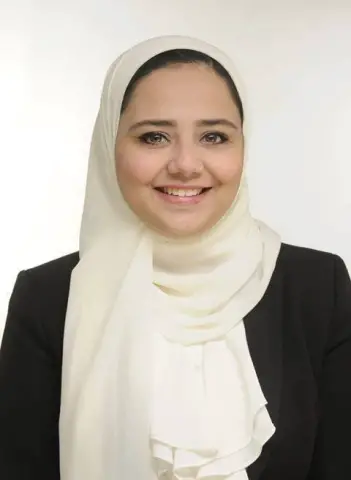Wednesday January 16, 2019 By: The Law Magazine
 A dilemma takes place right after graduating law school, a prestigious study that requires a prestigious occupation as well which comes in a diversity of options for any law school graduate. However, this is not the same scenario for female law graduates. Due to the fact that a limited option of professions is available for females to settle on without even attempting to think about joining the most paramount councils in Egypt as judges. The State Council, the Supreme Constitutional Court, the Public Prosecution and the Supreme Administrative Court are all considered impossible career opportunities for females.
A dilemma takes place right after graduating law school, a prestigious study that requires a prestigious occupation as well which comes in a diversity of options for any law school graduate. However, this is not the same scenario for female law graduates. Due to the fact that a limited option of professions is available for females to settle on without even attempting to think about joining the most paramount councils in Egypt as judges. The State Council, the Supreme Constitutional Court, the Public Prosecution and the Supreme Administrative Court are all considered impossible career opportunities for females.
Whenever the title of a female judge pops into mind, one usually thinks of Aisha Rateb the prominent Egyptian lady lawyer and ambassador that had strived for her opportunity in the State Council back in 1949. Nevertheless, she lost her case for the absurd reason of the incompatibility of her request with the Egyptian society’s standards. Fast forward to the year 2003, when the well-known Tahani al-Gebali was appointed as the first female judge being the Vice President of the Supreme Constitutional Court of Egypt. This forward progression had not lasted for so long, as she was laid off in 2012.
It’s rather ludicrous how we are in 2018 and the terror of appointing women as judges is still a case that is open for discussion. Regardless of the fact that in light of the Egyptian constitution, a right protected by Article 9 that states as follows: ‘The state ensures equal opportunity for all citizens without discrimination.’
In addition to Article 11 that affirms the principle of equality between men and women as follows: ‘The state commits to achieving equality between women and men in all civil, political, economic, social, and cultural rights in accordance with the provisions of this Constitution.’
In 2013 the Egyptian State Council stated in an advertisement that the class of 2013 can apply for the available opportunities. Therefore, several female graduates eagerly went to apply. Unfortunately, all the applicants were denied the right of even receiving the application form on the basis that they are women.
 After that, one of the applicants Omnia Taher Gadallah a Sharia and Law graduate with honors and the 2nd on her class filed a lawsuit in January 2014, before the Egyptian State Council which is both the defendant and the referee. Gadallah appealed the Council’s negative response on the basis that her constitutional right has been violated; while she has met all the requirements needed for the position she had applied for.
After that, one of the applicants Omnia Taher Gadallah a Sharia and Law graduate with honors and the 2nd on her class filed a lawsuit in January 2014, before the Egyptian State Council which is both the defendant and the referee. Gadallah appealed the Council’s negative response on the basis that her constitutional right has been violated; while she has met all the requirements needed for the position she had applied for.
In 2015, 34 males in Gadallah’s class got accepted in the Egyptian State Council. Even though Omnia and her fellow female applicants’ cases were very ripe to be litigated, the hearing kept on being adjourned till 2017 when she found out that the Council regarded the case as inadmissible in April 2017 without notifying her lawyer with such decision.
Gadallah also sought members in the Egyptian Parliament to suggest laws abolishing the discriminatory acts taken against the female applicants. Nadia Henry a member in the parliament attempted to do so, yet no positive results were achieved.
Furthermore, a campaign in support of Omnia’s case ‘Her Honor Setting the Bar’ started trending on the social media platforms for the Egyptian community to observe and be aware of the humiliation and disappointment women still feel every single day for a simple right they are calling for.
The State Council conference was held on the 8th of October 2018, when one of the attendees, the former president of the European Parliamentary Assembly inquired about whether or not females would be given the opportunity to join the council. The president of the Egyptian State Council Ahmed Abo El-Azm replied by saying that it’s just a matter of time.
There is not a quite definitive rationale behind the fact that the case keeps on being disregarded, while the Supreme Administrative Court’s hearing session that is set on the 22nd of December shall be a crucial one that will definitely have a major impact on Egypt’s future as it’s initially the country’s vision by 2030 to accept women as judges and expand their empowerment.
ُThe article is written by Nada Kamal for The Law Magazine
***If you liked this article, don’t forget to subscribe to our newsletter and receive our articles by email.
